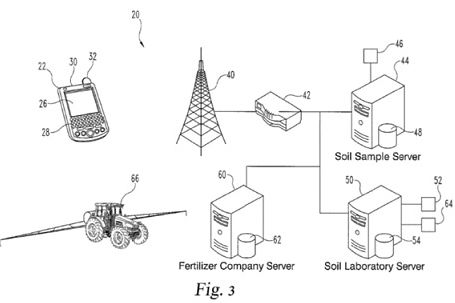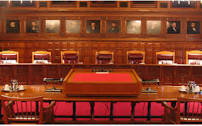Chicago, Illinois – The Seventh Circuit ruled in the ongoing intellectual property litigation between Plaintiff Lightspeed Media Corp. and Defendants Anthony Smith et al.
Attorneys for Lightspeed Media Corp. have filed numerous lawsuits nationwide in an apparent attempt to extract quick settlements from individual users who would rather avoid litigating their pornography consumption in open court. After pushback from Defendants and their internet service providers, as well as the imposition of sanctions by the Central District of California in a similar case, the attorneys began to voluntarily dismiss some of the cases.
The litigation against Defendant Smith was one such dismissed lawsuit. After the dismissal, Smith filed a motion for attorney’s fees. The Southern District of Illinois found that the Lightspeed lawsuit had been frivolous, baseless, and “smacked of bullying pretense,” and imposed sanctions of $261,025.11, jointly and severally, against three lawyers for Lightspeed: Paul Hansmeier, John Steele, and Paul Duffy.
Much legal wrangling ensued. While pleading to the court an inability to pay the sanctions, Steele withdrew over $300,000 from an account that he shared with his wife. Hansmeier withdrew a similar amount from one of his accounts. Each of these transfers was apparently an attempt to conceal the funds from the court and Smith. Other actions, also apparent attempts to conceal the funds, were also taken by the attorneys. Following these actions, Hansmeier filed for bankruptcy and Duffy passed away.
The Seventh Circuit was asked to consider the appropriateness of the sanction against the three attorneys. It declined to hear the matter as to Duffy, stating that because he was deceased he was “beyond [their] jurisdiction.” The appeals court dismissed the appeal as to Hansmeier, noting that, in a liquidation proceeding under Chapter 7 of the bankruptcy code, “only the trustee [of the bankruptcy estate] has standing to prosecute or defend a claim belonging to the estate.”
After a review of multiple instances of discovery misconduct, the appellate court held that the district court had acted within its discretion in imposing a discovery sanction against Steele for what it called a “pattern of vexatious and obstructive conduct” and “obviously egregious behavior.”
The appellate court then turned to the matter of the contempt sanction against Steele. Steele argued that the sanction was in fact criminal in nature, not civil. Thus, he contended, the district court had failed to abide by the enhanced procedural safeguards required for such a sanction.
The Seventh Circuit agreed. It held that, while “civil contempt may be imposed if proven by clear and convincing evidence, and without the full criminal procedural process,” imposing criminal contempt required more. Specifically, it required that the contemnor be “afforded the protections that the Constitution requires of such criminal proceedings.”
The appellate court also held that the fine, as ordered by the district court, was not “designed either to compel the contemnor into compliance with an existing court order or to compensate the complainant for losses sustained as a result of the contumacy,” as was appropriate for a finding of civil contempt. Instead, the sanctions that had been levied against Steele were punitive in nature, and “meant to vindicate the authority of the court.” Thus, they were properly deemed criminal sanctions.
Concluding that the procedures required under the Constitution for criminal contempt had not been applied, the Seventh Circuit vacated the contempt sanction.
 Indiana Intellectual Property Law News
Indiana Intellectual Property Law News






